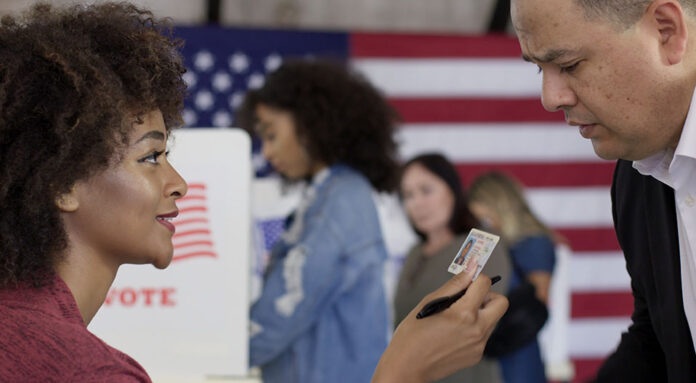by Suzanne Potter
California News Service
Backers of a proposed ballot initiative to require government ID to vote have just gotten state approval to start gathering signatures.
A group called Reform California, run by conservative radio host Carl DeMaio, is sponsoring the initiative but did not respond to requests for comment. Its website cites concerns about voter fraud.
Jonathan Mehta Stein, executive director at California Common Cause, said cases of voter impersonation are infinitesimal – and voter ID requirements hurt the approximately 10 percent of Californians who don’t have a driver’s license or state ID card.
“You would be solving a ‘problem’ that doesn’t really exist,” said Stein. “So you’re not gaining much. But you are putting barriers in front of young voters, older voters, voters with disabilities and low-income voters. The tradeoffs are not worth it.”
The proposal would also add requirements around maintenance of voter rolls – verification of ballot signatures and audits of the election process.
California already has extensive security measures in place to match voters’ addresses and signatures with those on file, and noncitizens cannot vote.
Stein said a bill on voter ID is introduced in almost every legislative session.
“It never goes anywhere, and because it’s bad policy, and not good for voters,” said Stein. “And I think the proponents are sick of losing in the Legislature and have decided to take this to the ballot.”
Voters have put Democrats in control of California’s executive and legislative branches.
The Reform California website states that so-called “election integrity” measures are necessary to achieve backers’ long-term goal to retake power at the state level.
Support for this reporting was provided by the Carnegie Corporation of New York.
During Health Literacy Month, protect yourself from big hospital bills
October is Health Literacy Month and advocates are speaking out against big hospital bills.
Studies show about two-thirds of bankruptcies in the U.S. are tied to medical debt.
Jim Manley, board member of Consumers for Quality Care, noted nonprofit hospitals are required to have financial assistance programs, and cannot take extraordinary collection actions on unpaid medical bills without first attempting to determine a patient’s eligibility for financial assistance.
“Despite these regulations, only 42 percent of hospitals have actually informed patients when they could be eligible for charity care, and 45 percent of nonprofit hospitals routinely send medical bills to patients who qualify for charity care,” Manley reported. “That’s not only against the law, it’s wrong.”
Patients are advised to call the hospital before any planned visits and find out if they qualify for a break on the cost, and check with other local hospitals to compare prices.
A 2021 study found hospital prices varied by nearly 300 percent between the highest and lowest prices for standard outpatient services. Federal rules require hospitals to publish the price of medical services but fewer than one-quarter of hospitals were complying as of last February.
Lawmakers have passed measures to prohibit surprise out-of-network bills from hospitals and ambulance companies. California’s new Office of Healthcare Affordability will be in full operation by 2026.
Rachel Linn Gish, communications director for the group Health Access California, said the agency will set cost growth targets across the health industry.
“Hospitals, providers and insurance companies, they will all have to agree to have their prices not exceed certain benchmarks,” Gish pointed out. “And if they do, then there are enforcement procedures that the state can take on the back end.”
Advocates also warn of the pitfalls of medical credit cards, which may carry a low initial interest rate but shoot up to 25 percent interest later on.



